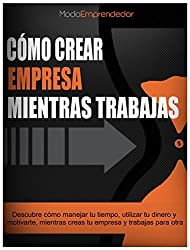
In this article you will know the history and lessons from the richest man in history:Jakob Fugger.
Maybe you have never heard of Jakob Fugger. So pay close attention.
Who was Jakob Fugger.
Fugger was a German banker who dedicated himself to financing kings, bishops, explorers and even popes. This work allowed him to amass the largest fortune created by a businessman.
The grandson of a farmer, he managed to persuade Leo X to legalize loans as a business. His schemes influenced different characters in history such as Martin Luther, the Roman Emperor and Carlos V of Spain.
Fugger’s wealth was estimated at $400 billion in today’s currency, at the time of his death in 1525. This represented 2% of Europe’s gross domestic product at the time.
Rockefeller is said to have had wealth close to that number, but did not surpass Fugger. So let’s see what are the lessons from the richest man in history.
1. Invest when others are afraid to.
Fugger gambled on two large investments that secured his fortune.
In the first, he financed Archduke Sigmund of Tyrol to take Venice. As his bankers refused to do so, when the duke settled in Venice, he paid Fugger for his backing; granting him the largest silver mine in the world.
Fugger also invested in the Hungarian copper mines, when others feared a Turkish invasion.
Contrary to what others thought, Fugger kept the copper business, just as he did with the silver mines. The Turks did invade Hungary, but long after Fugger’s death.
2. Be indispensable.
Fugger knew that he must be very smart to deal with monarchs, knowing that he could lose his money if they refused to pay.
If so, he couldn’t do anything, since their status protected them. But Fugger had the ability to raise large sums of money in a very short time; A skill coveted by all.
Monarchs could not live without it.
3. Know the facts.
This is one of the most important lessons from the richest man in history: Fugger always understood the value of information.
He created the world’s first news service and used it to learn about market movements before others.
An example of this was when Emperor Maximilian told Fugger that Henry VII had sent him gold as security for a loan to fight the French.
Fugger rejected the deal because his spies in England confirmed to him that the ships never left port.
4. Know the numbers.
The Italians invented the double-entry bookkeeping system we know today.
Fugger was one of the first to use it and added to accounting by creating a consolidated balance sheet for his businesses.
He was also the first to send auditors to review the activities of his companies. His ledgers have handwritten entries from Fugger himself asking questions about specific expenses.
5. Get a good education.
Fugger spent many years as an apprentice in Venice, the business capital of the time. He gained knowledge, experience, and connections that served him well for the rest of his life.
Speaking of the importance of education, I’m sure these free google courses with certificates can help you a lot.
6. Act calm.
An Austrian bishop was Fugger’s biggest investor.
When the bishop died in 1509, the Pope demanded that the money belonged to the church and must be returned. It is said that this money was invested in Fugger’s mining projects and that paying the full amount would have left him bankrupt, since he did not have the liquidity to pay off an amount of that magnitude.
Instead of panicking, he began wasting money, to make others believe that he had enough to pay, which gave him time to discreetly negotiate with the church.
If you are interested in learning sales and negotiation techniques, click here.
7. Give something back.
Fugger is best known for creating the Fuggerei, the world’s first affordable housing project.
He thought that everyone who had worked deserved to have a roof over their head. Therefore, his project rented real estate for a quarter of the market value.
Conclusion.
Most of the lessons from the richest man in history are based on having the necessary knowledge and information.
When you have them, you can more easily face any unforeseen event. In addition, you can plan much more accurately what your next steps will be.
We hope this information will be of great help to you 🙂
And remember, if you are really interested in creating your own business, you can read our book “How to create a company while working: Discover how to manage your time, manage your money and motivate yourself while creating a company and working for another” , where you will find all the information you need to found your own company, without having to leave your job.


